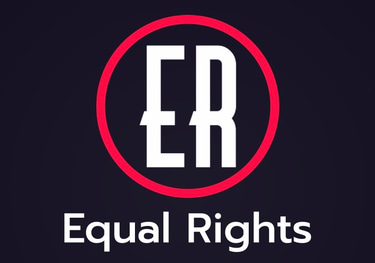10 Human Rights You Might Not Know About:
Lesser-Known Rights and Their Importance
Kylo B
6/30/2024
10 Human Rights You Might Not Know About: Lesser-Known Rights and Their Importance
While many people are familiar with fundamental human rights such as freedom of speech, the right to a fair trial, and freedom from torture, there are numerous other rights that are less well-known but equally vital. These lesser-known rights play crucial roles in ensuring the dignity, equality, and well-being of individuals and communities around the world. This article highlights ten such human rights, explaining their significance and the impact they have on societies.
1. The Right to Cultural Participation
Universal Declaration of Human Rights (UDHR), Article 27
Description: The right to cultural participation ensures that everyone can freely participate in their community's cultural life, enjoy the arts, and benefit from scientific progress.
Importance: Cultural participation is essential for preserving cultural heritage and diversity. It allows individuals to express their identities, fosters social cohesion, and promotes mutual understanding and respect among different cultural groups.
2. The Right to Rest and Leisure
UDHR, Article 24
Description: Everyone has the right to rest and leisure, including reasonable limitation of working hours and periodic holidays with pay.
Importance: Rest and leisure are crucial for physical and mental health. Adequate rest helps prevent burnout, reduces stress, and improves overall productivity and quality of life.
3. The Right to a Healthy Environment
Not explicitly mentioned in the UDHR but recognized in various international agreements
Description: This right entails living in an environment that is not harmful to one's health and well-being, and that promotes sustainable development.
Importance: A healthy environment is fundamental for human survival and development. Environmental degradation and pollution can lead to severe health problems, threaten food and water security, and exacerbate poverty and inequality.
4. The Right to Privacy
UDHR, Article 12; International Covenant on Civil and Political Rights (ICCPR), Article 17
Description: The right to privacy protects individuals from arbitrary or unlawful interference with their privacy, family, home, or correspondence, and from attacks on their honor and reputation.
Importance: Privacy is essential for personal autonomy and dignity. It allows individuals to express themselves freely, form and maintain relationships, and protect their personal information from misuse and exploitation.
5. The Right to Asylum
UDHR, Article 14
Description: Everyone has the right to seek and enjoy asylum from persecution in other countries.
Importance: The right to asylum is vital for protecting individuals fleeing persecution, violence, or conflict. It provides a safety net for refugees and ensures they can find refuge and protection when their home countries fail to safeguard their rights.
6. The Right to Freedom from Hunger
International Covenant on Economic, Social and Cultural Rights (ICESCR), Article 11
Description: Everyone has the right to an adequate standard of living, including adequate food, clothing, and housing, and to the continuous improvement of living conditions.
Importance: Freedom from hunger is fundamental for survival and well-being. Ensuring access to adequate food is critical for health, development, and the ability to live a life with dignity.
7. The Right to Education in Minority Languages
UNESCO Convention against Discrimination in Education, Article 5
Description: Minority groups have the right to establish their own educational institutions and to learn in their mother tongue.
Importance: Education in minority languages preserves linguistic diversity and cultural heritage. It enhances learning outcomes by allowing students to study in their first language and promotes inclusion and equality.
8. The Right to Participate in Government
UDHR, Article 21
Description: Everyone has the right to take part in the government of their country, directly or through freely chosen representatives.
Importance: Participation in government is crucial for democracy and accountability. It empowers individuals to influence decisions that affect their lives and ensures that governments reflect the will of the people.
9. The Right to Adequate Housing
ICESCR, Article 11
Description: Everyone has the right to an adequate standard of living, including adequate housing, and to the continuous improvement of living conditions.
Importance: Adequate housing is essential for health, safety, and dignity. It provides security and stability, which are necessary for individuals to participate fully in society and achieve their potential.
10. The Right to Development
UN Declaration on the Right to Development, Article 1
Description: The right to development entails the right of individuals and peoples to participate in, contribute to, and enjoy economic, social, cultural, and political development, in which all human rights and fundamental freedoms can be fully realized.
Importance: Development is a holistic concept that encompasses economic growth, social inclusion, and environmental sustainability. The right to development ensures that the benefits of development are shared equitably and that no one is left behind.
These lesser-known human rights are integral to the broader human rights framework, ensuring comprehensive protection and promotion of human dignity and equality. Recognizing and advocating for these rights is crucial for building a more just and inclusive world where all individuals can live with dignity, participate fully in society, and achieve their potential. By understanding and supporting these rights, we contribute to the advancement of global human rights and the betterment of humanity as a whole.
